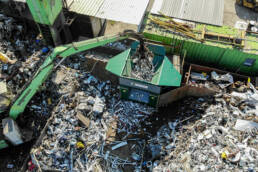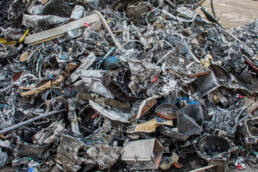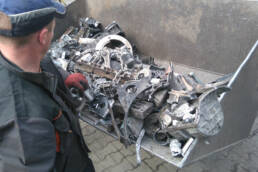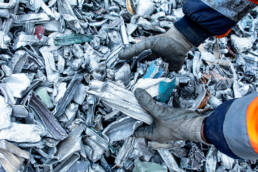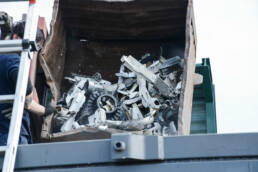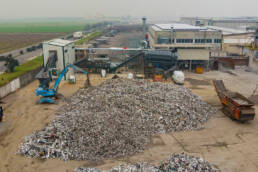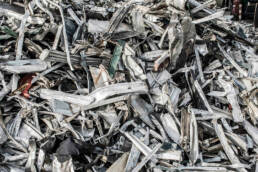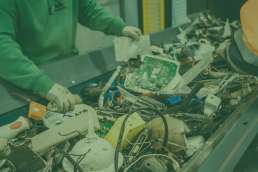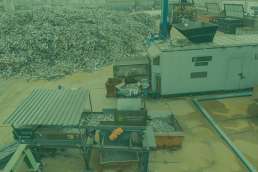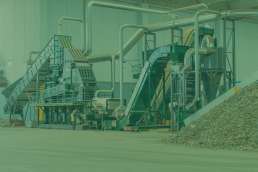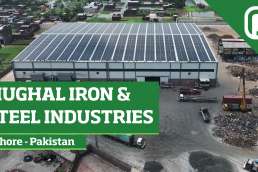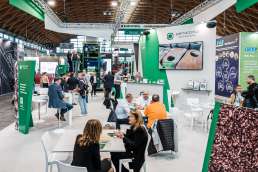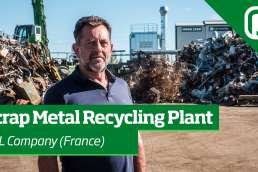
Recyclingaluminium
The market demands ever more lightweight and efficient alloys, making aluminium the metal of the future par excellence. Its recovery is an important from an economical standpoint.

Efficient treatmentsfor high quality results
Panizzolo plants are valued for their production performance, low consumption and management costs, and their ease of use. We stand out for our strong experience as direct users of processing systems and, exploiting this know-how, we study all the new solutions focusing on the customer and on the success of their investment.
An ever more large variety of objects, products and components are made in aluminium or in its primary and secondary alloys. Its features make this metal essential both in the construction of many common objects (bicycles, windows, coffee makers, etc.) and for technologically advanced and complex components (trains, cars, computers, aircraft and still more). As it does not exist in nature, aluminium has been recycled since 1900. Particularly in today’s circular economy it covers an important role. The recycling of aluminium, whether it be profile or casing, means dividing it from all the components with which it is assembled. One of the most common examples is the recycling of aluminium window frames which include screws, glass, handles and plastic with thermal functions.
Grinding operations can completely separate the additional materials so as to preserve the primary alloy aluminium, an ideal solution with respect to a process that entails casting that could create less valuable secondary alloys. X-ray sorting devices are used in our recycling plants for better selection of the aluminium alloy quality. They separate primary aluminium from secondary aluminium, an essential distinction for better yield during casting at the foundry.
Find out more about all our recycling solutions!
Video Gallery Input and Output
What is your treatment requirement?
We listen to your needs and can supply you with the best technologies to meet your business goals.
The processing cycles are designed to maximise production activities, to be able to attain full recovery of secondary raw materials and to reintroduce them directly into the economic cycle.
Towards the futureof the sector
It’s good to keep up-to-date on a market always on the move.
Follow the news in the sector and the Panizzolo columns.
